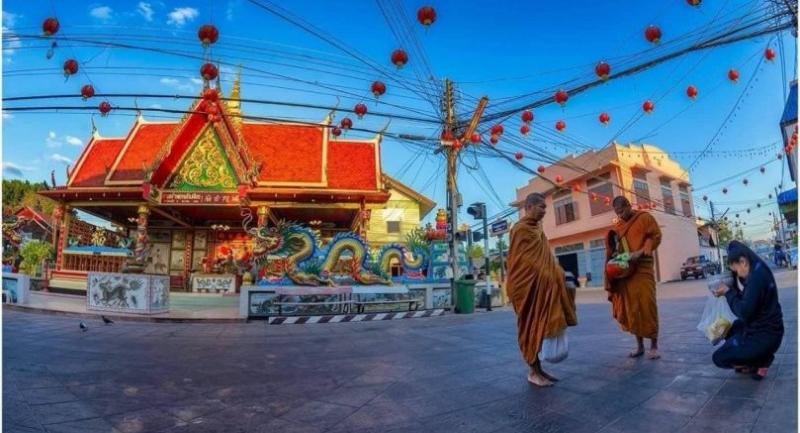Muang Yasothon get WWF honour for green initiatives

MUANG YASOTHON was crowned the Thai winner in the 2017 One Planet City Challenge international sustainable city competition.
The Challenge, organised by World Wide Fund for Nature (WWF), saw 132 cities from 23 countries competing.
Muang Yasothon in Yasothon province was praised by the international jury of experts for it comprehensive actions, strong local leadership, community engagement and its focus on sustainable mobility solution. It emerged as a clear winner from 10 participating cities across Thailand – Hat Yai and Prik in Songkhla province; Patong in Phuket; Bang Chak in Angthong; Hat Siew in Sukhothai province; Huai Khao Kam, Phayao province; Khelang Nakhon in Lampang province; Muang Ubon Ratchathani; and Muang Ranong City Municipality.

Credit : FB We Love Yasothon
The winners were announced on September 12 during the Global Climate Action Summit. The global winning city was Uppsala in Sweden.
“What impressed me the most about Muang Yasothon was the high level of community engagement and many climate campaigns for smart waste management and public transportation,” said Gordon Congdon, conservation programme manager of WWF Thailand, at the award ceremony held at Rama Gardens Hotel yesterday.
Slashing greenhouse gas emissions
In 2017, Muang Yasothon reduced greenhouse gas emissions by 23 per cent (or about 17,000 tonnes Co2e) compared to 2015 through many action plans it had implemented, said Unchalee Chumnum, director of public health and environment division, Yasothon Municipality. The city aimed to tackle three issues – waste, transportation and energy usage, she said. Each day more than 23 tonnes of trash headed to the city’s landfill. To reduce the size of these trash mountains, the city encouraged people to recycle and the city administration turned organic waste into fertiliser. The latter has reduced greenhouse gas emissions by 8,545 tonnes Co2e a year – and the carbon credits from this project could be sold for over Bt2.7 million, Unchalee added.
Now, about 9 tonnes of trash are turned into fertiliser each day. However, only about 0.3 tonnes are being recycled, data showed.
Muang Yasothon was also praised for its focus on smart mobility solutions and human-powered transportation. Each year, the city holds four big biking events, including one car-free day, and marks every Wednesday as a weekly biking day. Every week people ride a bike from their home to join the bicycle crowds in the public park. One of the ardent participants, Unchalee said, was Yasothon’s governor himself.
Apart from this, the city had also turned away from energy-draining light bulbs to use LED in many parts of the city, she said. However, Unchalee said without the vision of Yasothon Municipality Mayor Veerawat Paknikorn, who has encouraged green city plans, these projects would not have been a success.
For mayor Veerawat, Muang Yasothon is a small, quiet town. But the people had the northeastern culture and regard one another as family members who are ready to cooperate with officials when they organise climate campaigns. Next year, the mayor plans to start a “one family, one bicycle” campaign. “Each house should have at least one bicycle. Isn’t it cool to be ecology-friendly, show how cool you’re dressed and wave at other bikers sharing the street,” he said.
According to the WWF, half of the global population now lives in cities and they produce over 70 per cent of our climate footprints.
